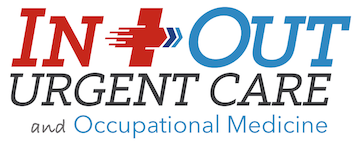General Illness Treatment
General Illness Treatment at In & Out Urgent Care, we can typically diagnose and treat our patients quickly so they can move on with their day. We also provide general care for sudden illness like difficulty breathing, diabetic emergency with little or no insulin or insulin dependent diabetes just to name a few.
Don’t see what ails you on our list? That’s ok! Our emergency room-trained physicians and skilled practitioners have experience treating a wide variety of medical issues.
Book an appointment and one of our locations:
New Orleans, LA
Metairie, LA
Covington, LA
Mandeville, LA
Lakeside/Metairie, LA
General Illness Treatment
List Of Common Illnesses
- Allergies: Urgent care centers can provide general illness treatment and evaluation for various types of allergies, including seasonal allergies, food allergies, and allergic reactions to medications or insect bites. They may offer antihistamines, corticosteroids, or other appropriate treatments to alleviate symptoms.
- Allergic reactions: Urgent care centers can provide general illness treatment for mild to moderate allergic reactions. They can assess the severity of the reaction and provide immediate medical intervention, such as administering antihistamines or epinephrine, to manage symptoms and prevent further complications.
- Animal bites: Urgent care centers can provide general illness treatment and can evaluate and treat minor animal bites, such as dog or cat bites. They can clean the wound, prescribe antibiotics if necessary, and provide tetanus shots to prevent infection.
- Asthma: Urgent care facilities can provide immediate assistance to individuals experiencing asthma attacks or worsening of asthma symptoms. They can administer bronchodilators and other appropriate medications to help alleviate breathing difficulties.
- Bronchitis: Urgent care centers can diagnose and treat bronchitis, which is an inflammation of the bronchial tubes. They may prescribe medications to relieve coughing and ease breathing, such as bronchodilators or cough suppressants.
- Cough / colds / flu: Urgent care clinics can address common respiratory infections, including coughs, colds, and flu. They can offer symptomatic relief, prescribe appropriate medications, and provide guidance on managing symptoms and preventing the spread of the infection.
- Cuts / lacerations / stitches: Urgent care centers are equipped to handle minor cuts and lacerations. They can clean the wound, assess its severity, and, if necessary, administer stitches or other wound-closure methods to promote proper healing and minimize scarring.
- Drug screening: Some urgent care facilities offer drug screening services for employment or legal purposes. They can collect samples and conduct tests to detect the presence of drugs or alcohol in an individual’s system.
- Earache: Urgent care centers can evaluate and treat earaches, which may be caused by ear infections or other conditions. They can assess the ear, provide pain relief, and prescribe antibiotics or recommend appropriate treatments based on the underlying cause.
- Ear infections: Urgent care facilities can diagnose and treat common ear infections, including otitis media or otitis externa. They can prescribe antibiotics, provide pain relief, and offer guidance on managing symptoms and preventing complications.
- Infections: Urgent care centers can assess and treat various types of infections, such as skin infections, urinary tract infections (UTIs), or respiratory infections. They may prescribe antibiotics or other appropriate medications to combat the infection.
- Minor eye problems: Urgent care clinics can address minor eye problems, including conjunctivitis (pink eye), foreign body removal, or eye irritations. They can provide eye drops, recommend home care, or refer patients to ophthalmologists if necessary.
- Sinus pain / infections: Urgent care facilities can diagnose and treat sinus pain and infections. They can offer symptomatic relief, prescribe antibiotics if needed, and provide recommendations for managing symptoms and promoting sinus health.
- Skin rashes: Urgent care centers can evaluate and treat various types of skin rashes, such as allergic reactions, contact dermatitis, or rashes associated with viral or bacterial infections. They can prescribe medications or recommend appropriate treatments to alleviate discomfort and promote healing.
- Sore throat: Urgent care clinics can assess and treat sore throats, which may be caused by viral or bacterial infections. They can provide symptomatic relief, prescribe antibiotics if necessary, and offer guidance on managing symptoms and preventing the spread of contagious infections.
- Sudden illnesses: Urgent care facilities are equipped to handle a range of sudden illnesses, such as fevers, gastrointestinal infections, or respiratory illnesses. They can provide appropriate treatments, offer advice on managing symptoms, and determine if further medical intervention or specialist referral is necessary.
- Urinary tract infections: Urgent care centers can diagnose and treat urinary tract infections (UTIs) by conducting urine tests and prescribing antibiotics to alleviate the infection. They can also offer recommendations for preventing future UTIs.
- Viral illness: Urgent care clinics can address various viral illnesses, such as common colds, flu, or viral gastroenteritis. They can provide supportive care, offer advice on symptom management, and monitor for complications that may require further medical attention.
Other Services:
General Illness
Urgent Care
Pediatric Care
Injuries (Including Sports Injuries)
Flu Shots and Vaccinations
Physicals
Lab Services
On-Site Prescriptions
Other Services (X-rays, IV’s and EKG)
Clinical Trials
